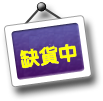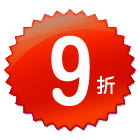- 定價99.00元
-
8
折優惠:HK$79.2

|
|
|
|
POLITICAL WILL.COMMON SENSE
|
|
|
|
|

|
|
9789868552357 | |
|

|
|
Shih Ming-te(施明德)、Chen Chia-chun(陳嘉君)編 | |
|

|
|
財團法人施明德講座基金會 | |
|

|
|
2011年12月31日
| |
|

|
|
133.00 元
| |
|

|
|
HK$ 119.7
|
|
|
|
|
| |
|
|
|
|
| |
|
|
詳
細
資
料
|
規格:平裝 / 200頁 / 19*25 cm / 普級 / 全彩 / 初版
出版地:台灣
|
|
分
類
|
社會科學 > 政治 > 概論 |
同
類
書
推
薦
|
|
|
內
容
簡
介
|
A Beginning
I was born in Taiwan in 1941. At that time, Taiwan was a colony of Imperial Japan, and the Kominka Movement (皇民化運動), a program to see the Taiwanese assimilated into the empire, had already been underway for several years. Many Taiwanese had already assumed Japanese names and, although my family had not done so, we were still considered imperial subjects. Like all other Taiwanese, our nationality was officially Japanese. Meanwhile, for several years Japan had been fighting China in what came to be known as the Second Sino-Japanese War, and so naturally we were to regard China as the enemy, although a minority of people did side with China in the conflict. Of course, these people were seen as traitors.
In 1945 the Second World War ended. Japan had lost, and Chinese forces occupied Taiwan, although they preferred to use the word “retrocession” (光復) instead of “occupation.” Overnight, I, along with all the other Taiwanese, went from being Japanese to Chinese. It was only with the 228 Incident (二二八事件) of Feb. 28, 1947, that many Taiwanese woke up to what was happening. How could the “ancestral homeland” be so cruel, how could it treat us more callously than the Japanese had?
Two years later, in 1949, the president of the Republic of China (ROC) Chiang Kai-shek (蔣介石) lost to the Chinese communists, and retreated to Taiwan, bringing with him an army 600,000 strong. The idea was for the army to be allowed to regroup and reconsolidate. The Taiwanese, too, were to be enlisted in the grand plan of “reconquering the mainland and vanquishing the Communists” (反攻大陸, 消滅共匪). The Chiang government told us that Mao Zedong (毛澤東), a man it characterized as being the very embodiment of evil, had “enslaved” the Chinese populace, and was threatening to unleash a massacre on Taiwanese soil, to “liberate Taiwan” and make the Taiwanese become part of the People’s Republic of China (PRC).
In the mid-20th century Taiwanese people went from being Japanese to Chinese, and found themselves embroiled in the middle of a fight between two Chinas.
Towards the end of the 1970s the burgeoning democracy movement in Taiwan started to gain traction. Taiwanese people were becoming aware of the fact that perhaps identifying themselves as Taiwanese was just as meaningful as regarding themselves as belonging to either the PRC or the ROC. A conflict was beginning to arise between the concepts of what was Taiwanese, and what was Chinese, both in Taiwanese society and in the hearts and minds of its individuals. It is a conflict that has not gone away. With the transfer of power to a different political party, electoral manipulations and guerrilla warfare between the “green” and “blue” parties have made the terms “Chinese” and “Taiwanese” loaded, potent weapons, and accusations of “selling out Taiwan” have become a terrible dagger that cuts deep to the heart of the accused.
I myself have been arrested on two occasions. The first was in 1962, the second in 1980. The crime, on both occasions, was treason for pushing for Taiwanese independence, and for this I spent over 25 years in prison. In 2006, then-president Chen Shui-bian (陳水扁) and members of his family had allowed themselves to get involved in corrupt deals, and I organized the “Million Voices Against Corruption, President Chen Must Go” movement. The governing Democratic Progressive Party (DPP) and sections of the press came out to protect Chen, and inexplicably accused me of that heinous crime I spoke of above: “selling out Taiwan.” For them, the DPP was Taiwan, and to “love” Chen was to love Taiwan. As I saw it, putting party interests first in this way was not good for the country.
Judgments on one’s patriotism, of whether one “loved” Taiwan or was selling the country down the river, became powerful tools in the hands of the competing political parties, blue versus green, in their fight against each other. The Taiwanese people had lost their political spirit, had lost any sense of direction or goal as they entered the 21st century. The presidential election descended into a scrap that centered almost entirely on the issue of patriotism. Nothing else was considered important.
Three years ago, my daughter, Hsiao Pan (小板), 10 years old and in the fourth grade of elementary school, came up to me with her younger sister Chia-chia (笳笳). They said to me, “Dad, aren’t we Taiwanese? Why does our teacher say we are Chinese?” My wife Chia-chun (嘉君) had been suggesting that we have the children educated at home. When the girls asked me this, I decided it was time to agree to her idea. We took the girls out of school and started teaching them at home. We did not want them getting caught up in, and confused by, the pointless blue/green, unification/independence tug of war.
It was also this incident that made me want to write a book so that I could explain to them the story of our country’s independence. I have already said, and written, too much on this subject, and have presented my ideas too academically and at too great a length. The thing is, how best to tell children about our country? I think we answer them in the same way we do when they ask questions about how they came into this world: with the utmost sincerity and frankness! After all, how can we hope to dispel prejudice if we gloss over the truth? So, this book is going to be a little different.
As I write this, my thoughts turn to my father, Shih Kuo-tsui (施闊嘴, 1886-1953), who, in his lifetime, was a slave of the Qing Dynasty, a subject of the Japanese Empire, a Chinese and a Taiwanese. His whole life, like so many other people in this country, he was never quite exactly sure which country he belonged to. I sincerely hope that in 20 years’ time, 30 years’ time, 50 years’ time, when I am no longer around and my children’s children have grown up, they will be able to live in peace together with their loved ones, and no longer have to worry about which country they come from. I believe that only when we have thrown off the shackles of doubt over which country we should identify with shall we be truly free as a people.
Finally, I’d like to say something about why I chose to call this book Common Sense. This is a question that friends who knew I was writing a book have asked me, most of whom thought it had something to do with a pamphlet of the same name published in 1776 by Thomas Paine, a publication that profoundly influenced the American independence movement.
I just smile and put my hands up. There was never really any intent to copy him. I was just thinking that knowing which country one belonged to should be quite a simple thing for someone living in the modern world, and that was what I meant by “common sense.” The fact is, however, that people in Taiwan are still confused about this issue, and it is discussed back and forth endlessly. It later occurred to me that there were certainly some similarities between my book and his.
Thomas Paine’s Common Sense was written at a time when America was still a colony of the British Empire, before American independence. He was trying to encourage Americans to stand up and fight for independence so, even though there was much sense to what he was saying, it was written with very stirring language, attempting to stimulate his compatriots into action, to claim their liberty and independence.
This book, my Common Sense, was written at a time when the country I am living in has already been independent for many years, and yet my own compatriots are continuously asking themselves the rather curious questions of whether their country is independent or not, and to which country they actually belong. All I can do is relate a story, tell people something they should already know through their own common sense. I need to let the 23 million people who live in Taiwan know that they can get together, know who they are and step forward to meet the challenges of the 21st century. We cannot linger in the past and stay with the preoccupations and enmities of the 20th century. Hatred, hostility, enmity – these are shackles. Please believe me when I say that forgiveness is a wonderful thing and can bring an end to suffering.
|
|
|
書
評
|
|
|
|
|

